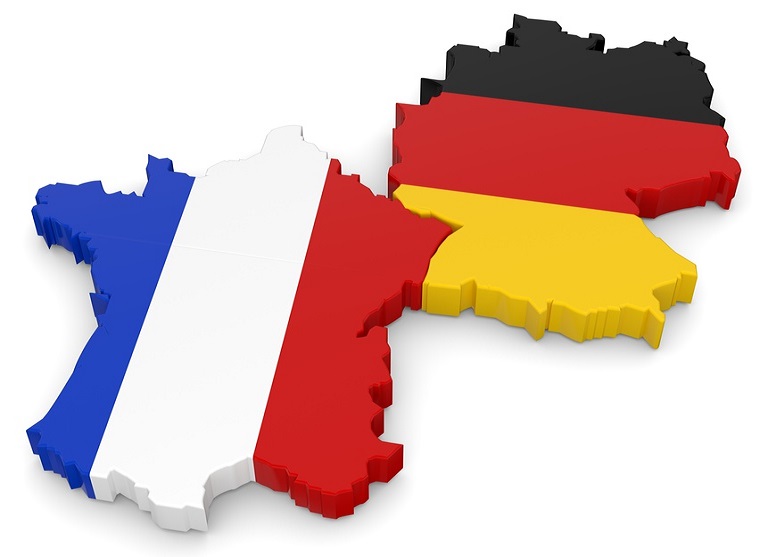
Source: Fotolia / fotomek
Based on the Elysée Treaty of 1963, regular working relations have developed between the German and French ministries, going beyond the joint summits of both governments which usually take place biannually. Since January 2003, the intergovernmental consultations have generally taken place in the form of joint cabinet councils (Franco-German Council of Ministers – DFMR/CMFA). This means that the two cabinets (generally in their entirety) come together and discuss key topical issues. The ministers also address issues relating to their specific policy areas in bilateral talks with their respective counterparts.
On the occasion of the 55th anniversary of the Elysée Treaty on 22 January 2018, the Assemblée Nationale and the German Bundestag adopted a joint resolution on the renewal of the Elysée Treaty.
The Governments of the Federal Republic of Germany and of the French Republic subsequently agreed a new Treaty on Franco-German Cooperation and Integration. This treaty was officially signed by Federal Chancellor Angela Merkel and President Emmanuel Macron in Aachen on 22 January 2019, hence its name ‘Treaty of Aachen’. The Treaty of Aachen builds on and updates the Elysée Treaty of 1963, rather than replacing it, allowing both Treaties to co-exist on equal footing. In the new Treaty, France and Germany reaffirm their joint efforts to facilitate cross-border mobility in the regions, among other things by better interlinking rail and road transport (Article 16), ensuring climate action across all policy areas (Article 18) as well as cooperating more closely on digital change (Article 21).
The Federal Ministry of Transport works closely with its French partner ministries, in particular the Ministry of Territorial Development and Decentralisation, to which the French Minister of Transport is attached. As Germany and France are very important mutual trading partners, both countries have a great interest in ensuring an efficient, sustainable and environmentally sound transport system as well as driving the digital transformation of the transport sector. The two ministers of transport maintain a regular and trusting dialogue.
The Federal Ministry of Transport and its French partner ministry both strongly advocate projects of bilateral cooperation that contribute to sustainable development, economic growth as well as environmentally- and climate-friendly mobility. Enhancing rail services between Berlin and Paris was a significant boost for Franco-German transport links. An Austrian Federal Railways (ÖBB) night train has connected the two capitals since December 2023, offering a convenient and environmentally friendly alternative to flying. Another milestone followed in December 2024 with the official opening of the direct ICE link between Berlin and Paris, significantly reducing the previous rail journey times between the capitals and promoting mobility between the countries.
Highlights of Franco-German cooperation in the transport sector:
- Enhanced cooperation in rail transport; establishment of a Franco-German high-level rail group in 2010; implementation of the projects in connection with the Treaty of Aachen
- Through services between the capitals Berlin and Paris (ÖBB night train since December 2023, daytime through ICE service since December 2024).
- Cooperation on transport and climate (including issues such as alternative fuels and innovative drivetrain technologies)
- Digital test bed for automated and connected driving (since 2017)
- Enhanced cooperation on hydrogen
- Establishment of a Franco-German dialogue platform on refuelling and charging infrastructure
- New opportunities through urban air mobility
- Opening and exchange of mobility data
In addition, the two ministries responsible for transport coordinate closely on European matters, especially in the run-up to EU Transport Councils.
Employees at the two ministries have the opportunity to participate in temporary staff exchanges. Regular staff exchanges were established in 2004.